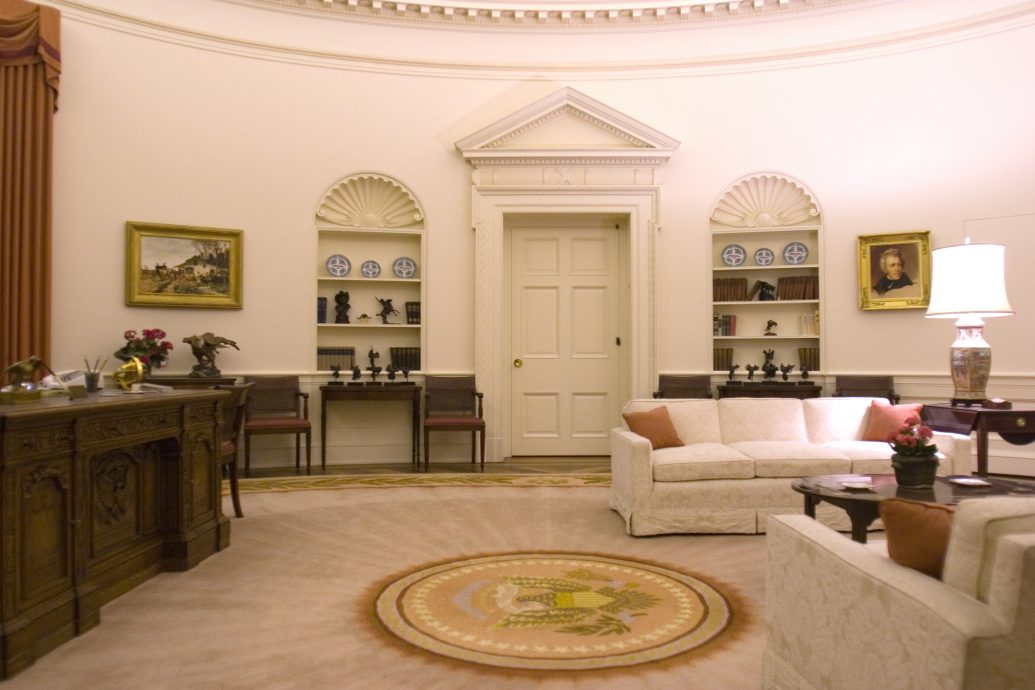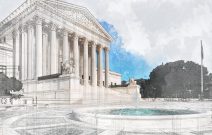Whether legal outcomes conform to what scientists desire should not matter—the Supreme Court’s job is to get the law right.
Presidential Power According to Jack Balkin
Earlier this month Jack Balkin (Yale Law School) and I found ourselves on an APSA/Claremont Panel on “The Legacy of Justice Antonin Scalia,” alongside Hadley Arkes and Ralph Rossum. We couldn’t find anything to disagree about. In his more recent post on “Presidential Governance,” Jack gets it right again. The Reagan regime, which began with the death of the New Deal regime in 1980, has definitively come to an end. (Jack has an elaborate theory of “regimes” but you don’t need it for this post.) The Obama regime has begun. It is characterized by two central features: party polarization, and executive dominance. Jack makes it amply clear that he truly dislikes those trends; they are “worrisome” and “unsustainable in the long run.” But for now they are here to stay. His fine posts addresses the consequences for judicial review and the role of the Court. The Court, he says, will do two things: beat down state-side opposition to the President’s policies; and legitimate and constrain presidential government. That will probably entail some doctrinal changes (for example, on standing to sue).
Two points: a quick one on presidential governance, a slightly longer one on judicial review.
Presidential Governance. Jack assumes (for purposes of his post at least) that Mrs. Clinton will win in November. That may well be right. But I don’t see any reason to think that the features he identifies—polarization, presidentialism—will depend on the President’s party. They are robust to partisan constellations. It just so happens that after his Nobel Prize and an epic Care Act, Mr. Obama will have an entire regime named after him even if it turns out to be Republican. Congrats, I suppose.
Judicial Review. I predict that the Obama regime (in Jack’s sense) will entail a dramatic loss of the Court’s prestige and influence. Presidential governance always has that result, and you can already see the harbingers.
For one thing, polarization soon engulfs the Court itself. Witness our Court: a divide once marked primarily by ideological rifts over “social” issues has also come to characterize “executive government” questions, with profound effects on public perceptions and the political process. The Clinton administration’s nominees, Justices Stephen Breyer and Ruth Bader Ginsburg, were confirmed with Republican and Chamber of Commerce support based on the expectation that those moderate justices would of course vote predictably on abortion or women’s rights (they’re Dems and so what do you expect) but would have an open mind on less loaded questions of administrative law or civil procedure. The same hope or expectation accompanied Justice Elena Kagan’s appointment. In sharp contrast, no such good will has been extended to President Obama’s nomination of the equally moderate Judge Merrick Garland: the expectation is that he will simply be in the tank for a Democratic administration. If you’re Thomas Mann or E.J. Dionne you’ll ascribe that to the radicalization of the GOP (because that to their minds explains everything). If you’ve paid attention you’ll have noticed that the supposedly moderate Democratic appointees have sided with the administration in any case of any consequence; they vote as a bloc no matter what. Justice Garland would do the same because that has become the expected attitude.
For another thing, Jack rightly says that an executive-dominated government will eventually produce an executive-dominated court. That Court, he continues, will legitimate and constrain the executive. Jack doesn’t spell out the theory but I think it goes like this: if the Court doesn’t occasionally say “no” to “its” executive, a judicial nihil obstat will no longer count for anything, either. Even the Executive itself can’t want that.
If that’s the theory, it’s doubtful, at least in any case that might matter. It assumes that the Prez needs or wants the Court’s legitimation. Maybe; but unlikely. Usually, presidentialist regimes do what they want and produce the requisite legitimation through propaganda, leadership cult, and intimidation. Moreover, assertions of executive prerogative are very likely to assume forms for which the existing body of law has no answer. Thus, judicial resistance to executive demands will look like a de facto coup: if no pre-existing, tolerably certain and settled doctrines govern the cases, the new one must surely be made up. Conversely, doctrines developed in harmony with the government-in-power will be perceived as a judicial surrender to the executive. The Supreme Court’s predicament in the Affordable Care Act cases was widely discussed in these terms, and its rulings were widely understood as maneuvering between the horns of the dilemma. Neither case has been good for the Court’s prestige, on either side of the political spectrum.
In that predicament, how is a Court to procure a political base and to show that it is still relevant? When judges can’t do anything about the constitutional structure, their usual course is to crank up new rights for constituencies that have the executive’s blessing or at least its toleration. Admittedly that’s a tall order: is there a right that has yet to be invented? Surely, though, we could find some new ones if only we put our minds to it. The right to be free from religious and therefore false advertising (“The meek shall inherit the earth”) might be one; a felon’s right to vote might be another. I don’t do rights and so I’m no good at this; but I’m quite confident of the institutional dynamics and the general direction.



